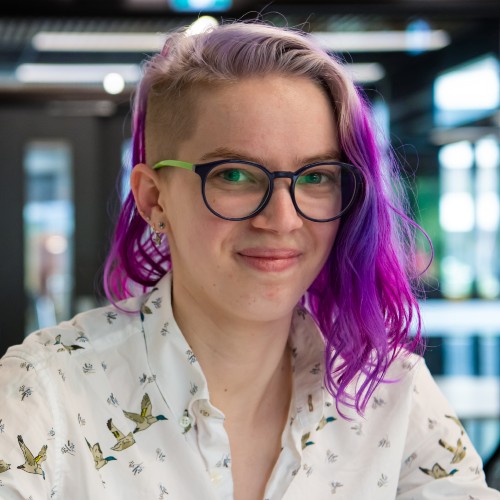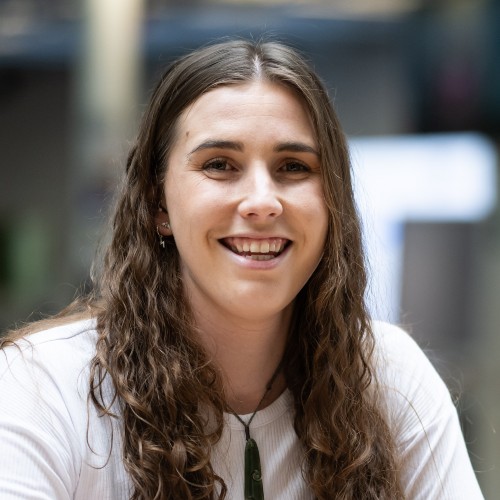
Postgraduate Educational Psychology programmes –
Gain an in-depth understanding of psychology, education, and learning with advanced study and practice in educational psychology.
The people you work with and learn from are an important part of your studies. Learn who the teaching staff are and find out what the programme is like.
Academic staff
Meet our academic teaching staff and find out more about our areas of research.
- Dr Chris BowdenDr Chris Bowden—Adolescent and young adult development and mental health, mental health education, trauma informed education, educational interventions/support, suicide prevention and postvention.
- Prof Vanessa GreenProf Vanessa Green—Children’s social and emotional development, peer relationships, parenting and bullying prevention. (Programme Director, MEdPsych)
- AProf Flaviu HodisAProf Flaviu Hodis—Motivation, self-regulation, learning, academic procrastination.
- Dr Jonathan MooreDr Jonathan Moore—Children’s development of self-concept, fostering learner agency through collaborative models, metacognition. (Director of Postgraduate Diploma in Educational Psychology Practice)
- Prof Jeff SigafoosProf Jeff Sigafoos—Applied behaviour analysis, severe disabilities, communication intervention, assistive technology.
- Dr Jess TupouDr Jess Tupou—Autism and neurodiversity, culturally responsive practice, inclusive education, mātauranga Māori and early support.
- Dr Hannah WaddingtonDr Hannah Waddington—Neurodiversity affirming and culturally responsive early identification and support for autistic children.
- Dr Kate WittDr Kate Witt—Educational neuroscience, educational interventions and support, social-cognitive development, neurodevelopmental and psychological disorders. (Programme Director, undergraduate Educational Psychology)
- Dr Burt HatchDr Burt Hatch—Child development, self-regulation, neurodevelopmental conditions (e.g., ADHD, autism) and mental health.
Other teaching staff
- Ange Evans—Educational Psychology Practice Adviser.
- Dr Jasmine Field—Educational Psychology Practice Adviser.
- Dr Russell PineDr Russell Pine—Social-cognitive development, adolescent development, cognitive behavioural therapy, educational psychology, behavior analysis, acceptance and commitment therapy.
Stories

Tessa Jacobson Grocott
Graduate, Bachelor of Science in Statistics and Bachelor of Arts with Honours in Education
What initially sparked my interest in EdPsyc, and continues to do so, is the approach to education and learning as life-long and multi-faceted.
Multidisciplinary scholar
Tessa, who has a Bachelor of Science majoring in Statistics, and a Bachelor of Arts with Honours in Education, came to university after completing a polytechnic course in early childhood education.
Passion for lifelong learning
“What initially sparked my interest in EdPsyc, and continues to do so, is the approach to education and learning as life-long and multi-faceted. For example, undergraduate courses I took in lifespan development, and learning and motivation have been directly applicable to my everyday life as well as developing my theoretical understanding,” explains Tessa. “The EdPsyc courses I have taken have had some of the most engaging and collaborative student communities I’ve experienced, fostered by great lecturers.”
Holistic university experience
University is about so much more than academic learning, says Tessa, who has been heavily involved in Te Herenga Waka’s sustainability efforts. “The last several years have certainly been a period of massive self-discovery, from a late diagnosis of ADHD to explorations of gender and identity. Being exposed to the wonderful diversity of experiences and backgrounds of my fellow students at Te Herenga Waka has played a big role in encouraging reflection and also in simply learning about experiences I didn’t know existed.”

Georgia Davies
Postgraduate Diploma in Educational Psychology Practice student
For those that don’t consider yourselves ‘academic’, I am proof that it is possible.
Embracing Educational Psychology
Passionate lecturers who go above and beyond to help students succeed is just one of the reasons Georgia Davies loves studying Educational Psychology at Te Herenga Waka—Victoria University of Wellington.
Lecturers' dedication in student development
She says her lecturers have been “amazing.” “They are passionate, will go above and beyond for their students, and are heavily invested in their students’ development.”
Overcoming challenges and building confidence
Georgia says coming to Te Herenga Waka pushed her in ways she never imagined. “For those that don’t consider yourselves ‘academic’, I am proof that it is possible,” she says. “It challenged my resilience, time-management, and confidence, but is important to remember that, while hard, a challenge isn’t necessarily a negative thing. My time-management skills have become a point of pride and I can confidently say I am more resilient in the workplace.”
Barbara Ferguson
Doctor of Philosophy in Education student
Completing my study and research at Te Herenga Waka will enable me to change the discourse on ADHD and enrich and create positive change in the lives of females with ADHD.
Pursuing Educational Psychology
Coming to Te Herenga Waka—Victoria University of Wellington to do her Masters and PhD in Educational Psychology was an easy choice for Barbara Ferguson.
Advocating for early support and intervention in education
“I was passionate about studying in this field. I believe early support and intervention is the key to mitigating many of the challenges that ākonga (students) and young people experience, so I wanted to help them understand themselves, and be able to know and access their own strengths,”.
Transforming education through ADHD research
Barbara says her research will have many real-world applications. “My PhD will ultimately enable me to contribute to the development of psychoeducation, improve early intervention, and professional practice—such as upskilling educational psychologists and others—and increase public understanding of ADHD,” she says. “Completing my study and research at Te Herenga Waka will enable me to change the discourse on ADHD and enrich and create positive change in the lives of females with ADHD.”
Previous
RequirementsNext
How to apply

